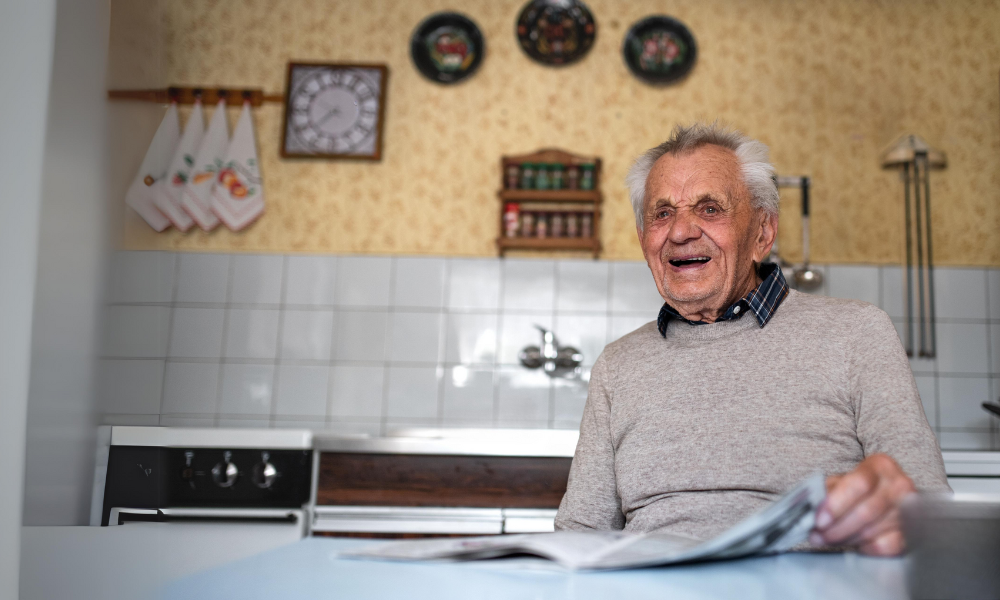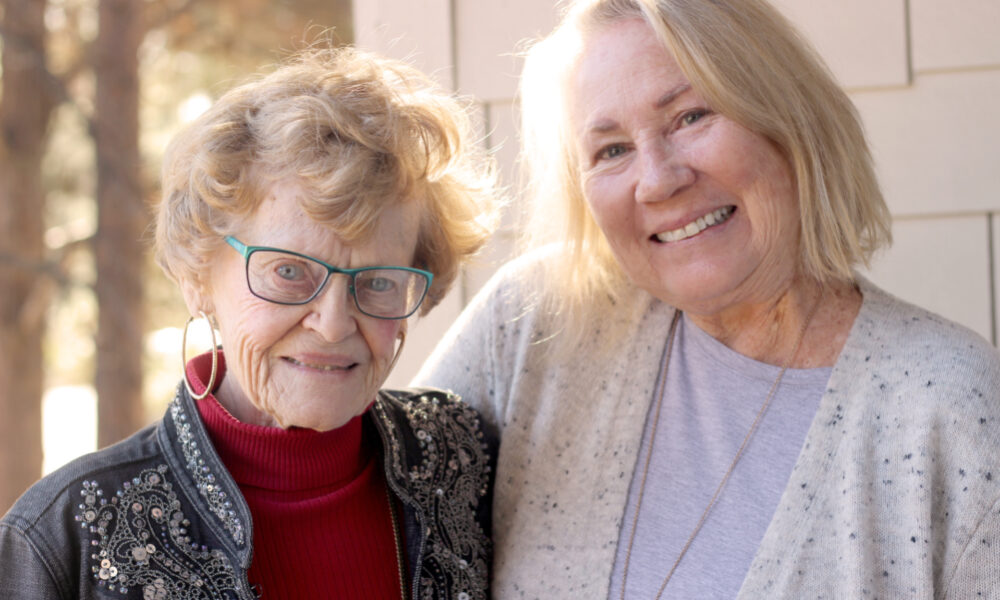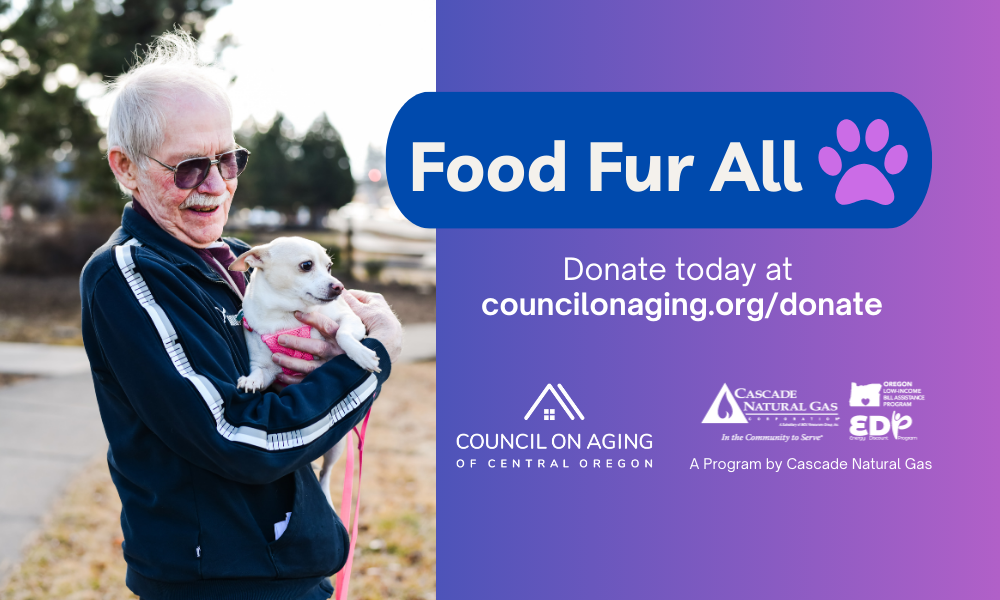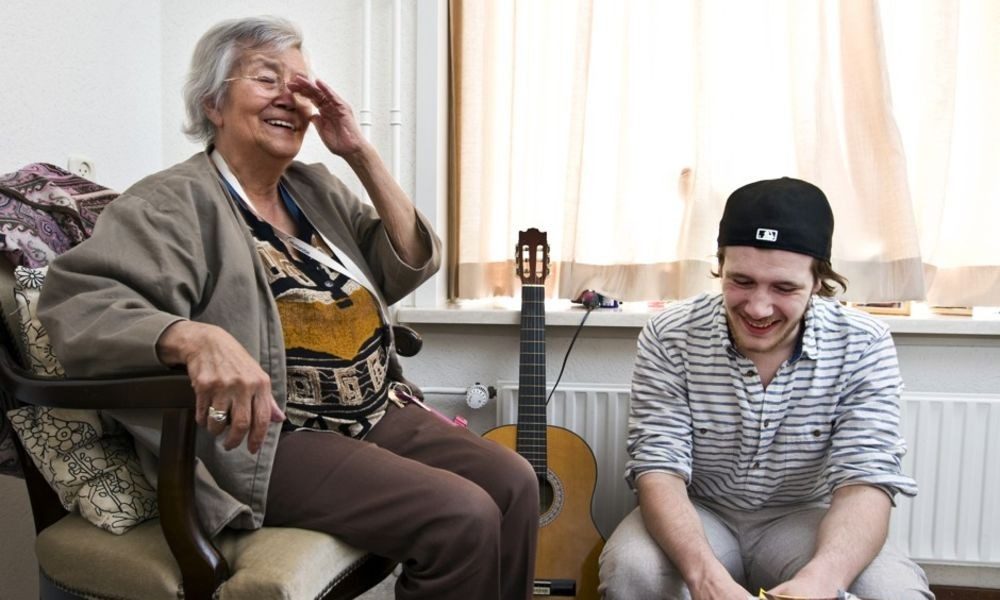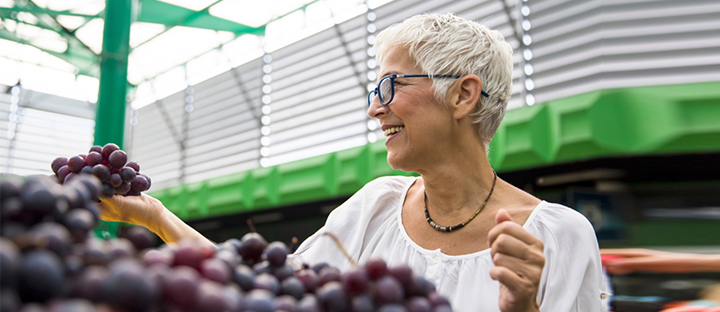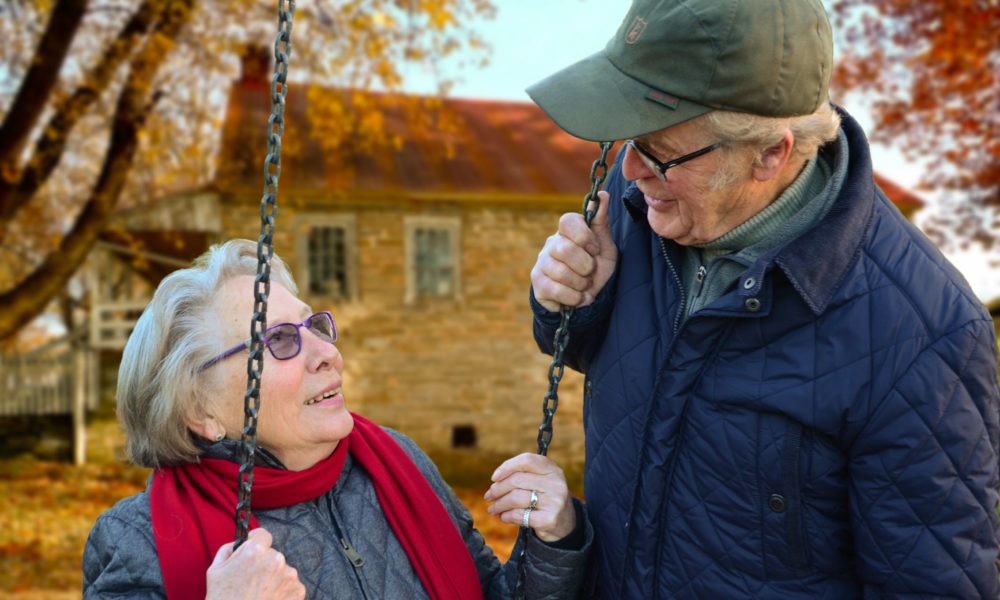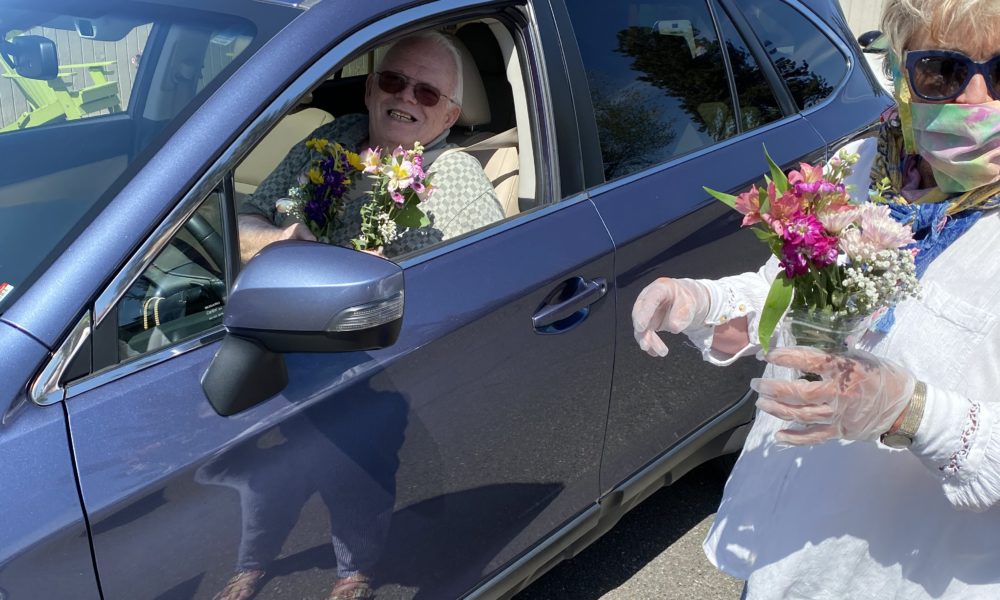At the Council on Aging, our Meals on Wheels and Community Dining programs are at the heart of our mission to support all Central Oregonians to age well wherever and however they choose. Through our meal delivery programs, community dining, and nutrition education initiatives, we’re making a tangible difference in the lives of aging adults. But with the fiscal…
Read MoreAging Good … Ageism Bad
By Barbara Croyle “There are six myths about old age: 1. That it’s a disease, a disaster. 2. That we are mindless. 3.That we are sexless. 4. That we are useless. 5. That we are powerless. 6. That we are all alike.” Maggie Kuhn, Founder of the Gray Panthers “It is not true that people…
Read MoreWe Believe in Food Fur All
For someone who is homebound, their pets can be the most important companion in their life. These furry friends ensure that people have something that brings them delight and love. As animal lovers, we are committed to helping homebound people and their pets thrive in their homes. That’s why the Council on Aging has a…
Read MoreMultigenerational Housing: What Makes a Community a Paradise for Seniors?
Multigenerational housing aims to meet the needs of people of all ages and stages of life. But what does that mean? Attributes like safe, affordable, walkable, and diverse meet most people’s criteria. But what about diversity that goes beyond race or gender? Does a society that lacks generational diversity bring a wealth of benefits to…
Read MoreThe Importance of Respecting and Including Older Adults
In a society that glorifies youth and change in its popular imagery, the common negative images of age and aging can fuel disrespectful behavior. Among the ageist biases reported, older people felt they were thought of as useless, less intelligent, stingy and a burden. As a group, there is a perception in developed countries that…
Read MoreMaking Communities Socially Inclusive for Older Adults
When we make communities socially inclusive for older adults, it helps them to live a long and fulfilling life. The World Health Organization’s report on age-friendly cities says, “Social participation and social support is connected to good health and well-being throughout life.” Since humans are social creatures, inclusion, or a sense of community, is key…
Read MoreInclusiveness for an Aging Population
(Image Courtesy of Larrygrams) The United States has an aging population as Americans are living longer than ever before. Thanks to advances in healthcare technologies we have increased the life expectancy by an average of roughly 30 years since 1900. Considering a person in Oregon lives until they are approximately 79.5 and the average age…
Read MoreAge Friendly Transportation
Welcome to our second issue on Age-friendly cities. Last time we discussed Outdoor Spaces and Buildings and now we are digging into Transportation. Even if you have lots of inviting parks near you, it doesn’t matter if you can’t get there on time. As we age, accomplishing daily tasks like driving and parking may become…
Read MoreAge-Friendly Communities: Outdoor Spaces and Buildings
In 2007 the World Health Organization released its report Global Age-Friendly Cities: A Guide, in which it details specific criteria for Outdoor Spaces and buildings. Both of these are vital as our environment has a direct effect on our well-being, both mental and physical. A stroll in the park or a comfortable bench may not…
Read MoreAge-Friendly Communities: A Step Forward For Older Adults
Traditional retirement plans are disappearing, the cost of living continues to rise, and more than 84% of people aged 65+ are coping with one or more chronic health conditions.
Read MoreGratitude, Resilience, and Pivots in the Face of COVID-19
During the COVID-19 crisis, thanks to you we’ve been able to increase our services, attract new volunteers, offer nutrition and outreach to seniors and raise new funds from our generous donors.
Read More
